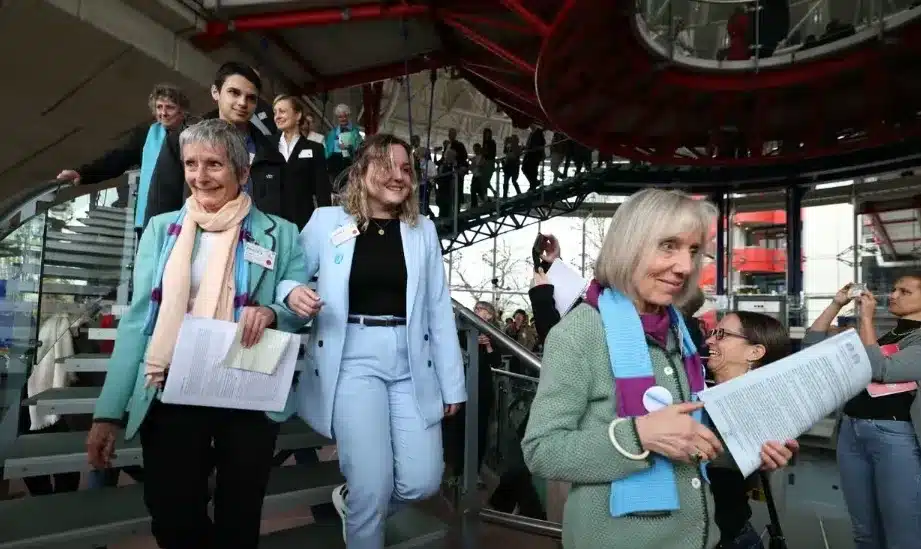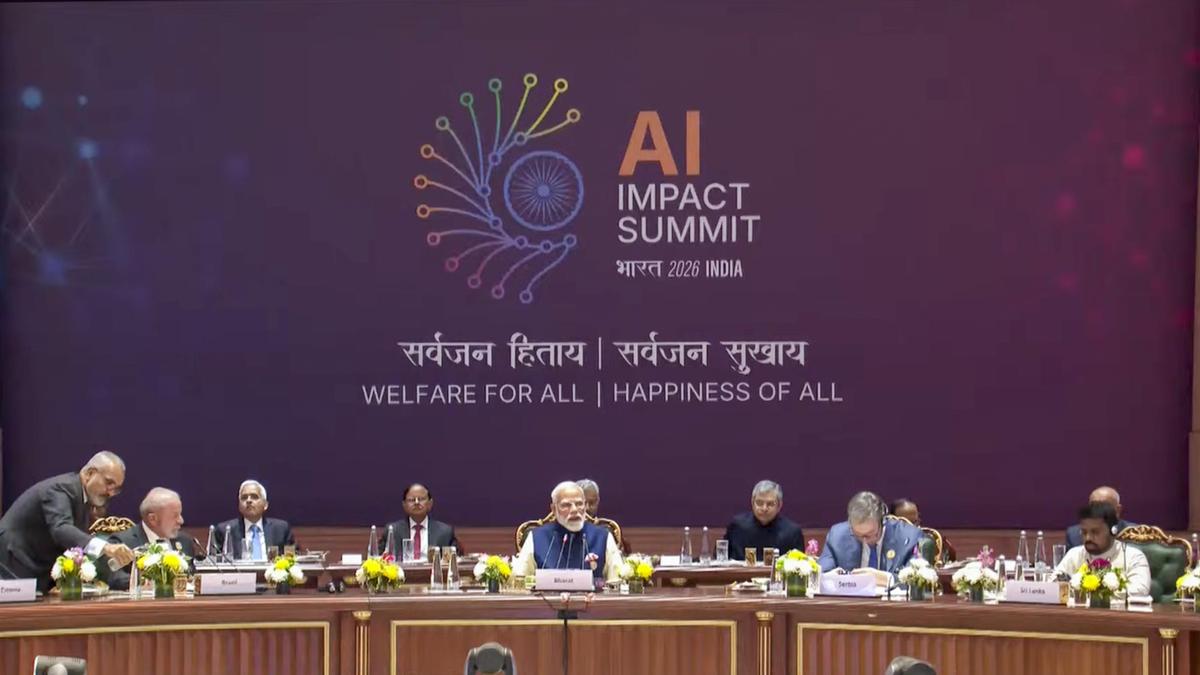What’s in today’s article?
- Why in News?
- What is European Court of Human Rights (ECHR)?
- About the case
- Verdict given by ECHR
- Significance of this ruling
- Rise in climate litigation across the globe
Why in News?
Recently, Europe’s highest human rights court sided with a group of 2,000 Swiss women. These women had sued their government for violating their human rights by failing to do enough to combat the adverse effects of climate change.
The landmark ruling by the European Court of Human Rights (ECHR) might change how courts in Europe and other places handle cases where people say climate change hurts their rights.
This is significant as the verdict has come just days after the Supreme Court of India expanded the scope of Articles 14 (right to equality) and 21 (protection of life and personal liberty). SC said that people have a right to be free from the adverse effects of climate change.
What is European Court of Human Rights (ECHR)?
- About
- ECHR is an international court that interprets the European Convention on Human Rights.
- It was established in 1959 and is based in Strasbourg, France.
- It consists of a number of judges equal to the number of member States of the Council of Europe that have ratified the Convention for the Protection of Human Rights and Fundamental Freedoms – currently 46.
- Functions
- The ECHR rules on applications from individuals, groups of individuals, or other contracting states that allege violations of the European Convention on Human Rights.
- The Convention primarily concerns civil and political rights.
- The court can issue judgments and advisory opinions.
About the case
- The case was brought against Switzerland by KlimaSeniorinnen Schweiz (Association of Senior Women for Climate Protection Switzerland) in November 2016.
- It is a group of women climate activists all above the age of 64.
- The women claimed that the Swiss government’s inadequate climate policies violate their right to life and other guarantees under the European Convention on Human Rights.
- The convention is an international agreement to protect human rights and political freedoms in Europe.
- They built their case by partly relying on their medical vulnerability as senior citizens to extreme heat caused by climate change.
- They cited the reports by the Intergovernmental Panel on Climate Change (IPCC) — a United Nations body which assesses the science related to climate change.
Verdict given by ECHR
- Highlighted Article 8 of the European Convention on Human Rights
- The ECHR noted that Article 8 of the convention, encompasses a right for individuals to effective protection by the state authorities from the serious adverse effects of climate change on their lives, health, well-being and quality of life.
- Failure of Swiss government
- The Swiss government violated the law as it not only did not enact adequate laws to combat climate change impacts.
- It also failed to meet greenhouse gas (GHG) emission goals.
- Hence, it is clear that future generations are likely to bear an increasingly severe burden of the consequences of present failures and omissions to combat climate change.
Significance of this ruling
- Obligations of Swiss Government
- The Swiss government is now obliged to update its climate change policies but the ECHR cannot tell authorities what kind of policies to implement.
- Verdict is applicable in member states
- The ECHR’s verdict is applicable in 46 member states, including all the European Union (EU), plus the United Kingdom (UK) and various other non-EU countries.
- This means that any climate and human rights case brought before a judge in Europe’s national courts will now have to consider ECHR’s judgment.
- Empowers citizens and communities
- The verdict also encourages citizens and communities to file similar cases in countries that are party to the European Convention on Human Rights.
Rise in climate litigation across the globe
- Recently, there has been an increase in climate litigation — a form of legal action that is being used to hold countries and companies accountable for their climate mitigation efforts and historical contributions to climate change.
- As per a report, as of December 2022, there have been 2,180 climate-related cases filed in 65 jurisdictions.
- Children and youth, women’s groups, local communities, and Indigenous Peoples, among others, are taking a prominent role in bringing these cases.
Q.1. What is Intergovernmental Panel on Climate Change (IPCC)?
The Intergovernmental Panel on Climate Change (IPCC) is a United Nations body that assesses the science related to climate change. The IPCC was established in 1988 by the World Meteorological Organization and the United Nations Environment Programme.
Q.2. What is Council of Europe?
The Council of Europe is an international organization that was established in 1949 to promote human rights, democracy, and the rule of law in member states. The Council of Europe is based in Strasbourg, France and has 46 member states, 27 of which are members of the European Union
Source: Swiss women win landmark climate change case: Why is it significant?
Last updated on February, 2026
→ UPSC Notification 2026 is now out on the official website at upsconline.nic.in.
→ UPSC IFoS Notification 2026 is now out on the official website at upsconline.nic.in.
→ UPSC Calendar 2026 has been released.
→ UPSC Final Result 2025 is expected to be released in the second week of April 2026.
→ Check out the latest UPSC Syllabus 2026 here.
→ Join Vajiram & Ravi’s Interview Guidance Programme for expert help to crack your final UPSC stage.
→ UPSC Mains Result 2025 is now out.
→ UPSC Prelims 2026 will be conducted on 24th May, 2026 & UPSC Mains 2026 will be conducted on 21st August 2026.
→ The UPSC Selection Process is of 3 stages-Prelims, Mains and Interview.
→ Prepare effectively with Vajiram & Ravi’s UPSC Prelims Test Series 2026 featuring full-length mock tests, detailed solutions, and performance analysis.
→ Enroll in Vajiram & Ravi’s UPSC Mains Test Series 2026 for structured answer writing practice, expert evaluation, and exam-oriented feedback.
→ Join Vajiram & Ravi’s Best UPSC Mentorship Program for personalized guidance, strategy planning, and one-to-one support from experienced mentors.
→ Check UPSC Marksheet 2024 Here.
→ UPSC Toppers List 2024 is released now. Shakti Dubey is UPSC AIR 1 2024 Topper.
→ Also check Best UPSC Coaching in India




















